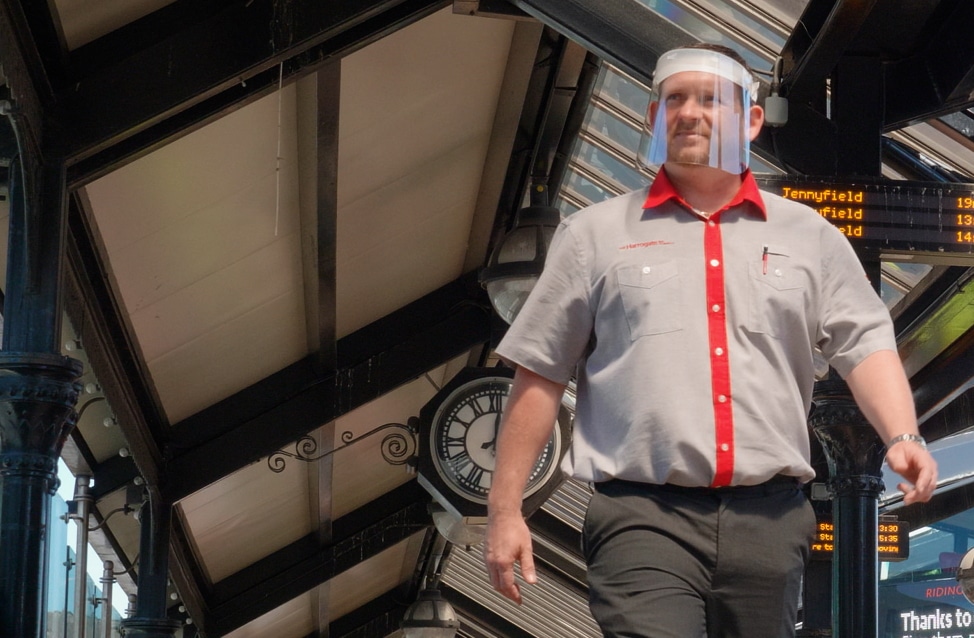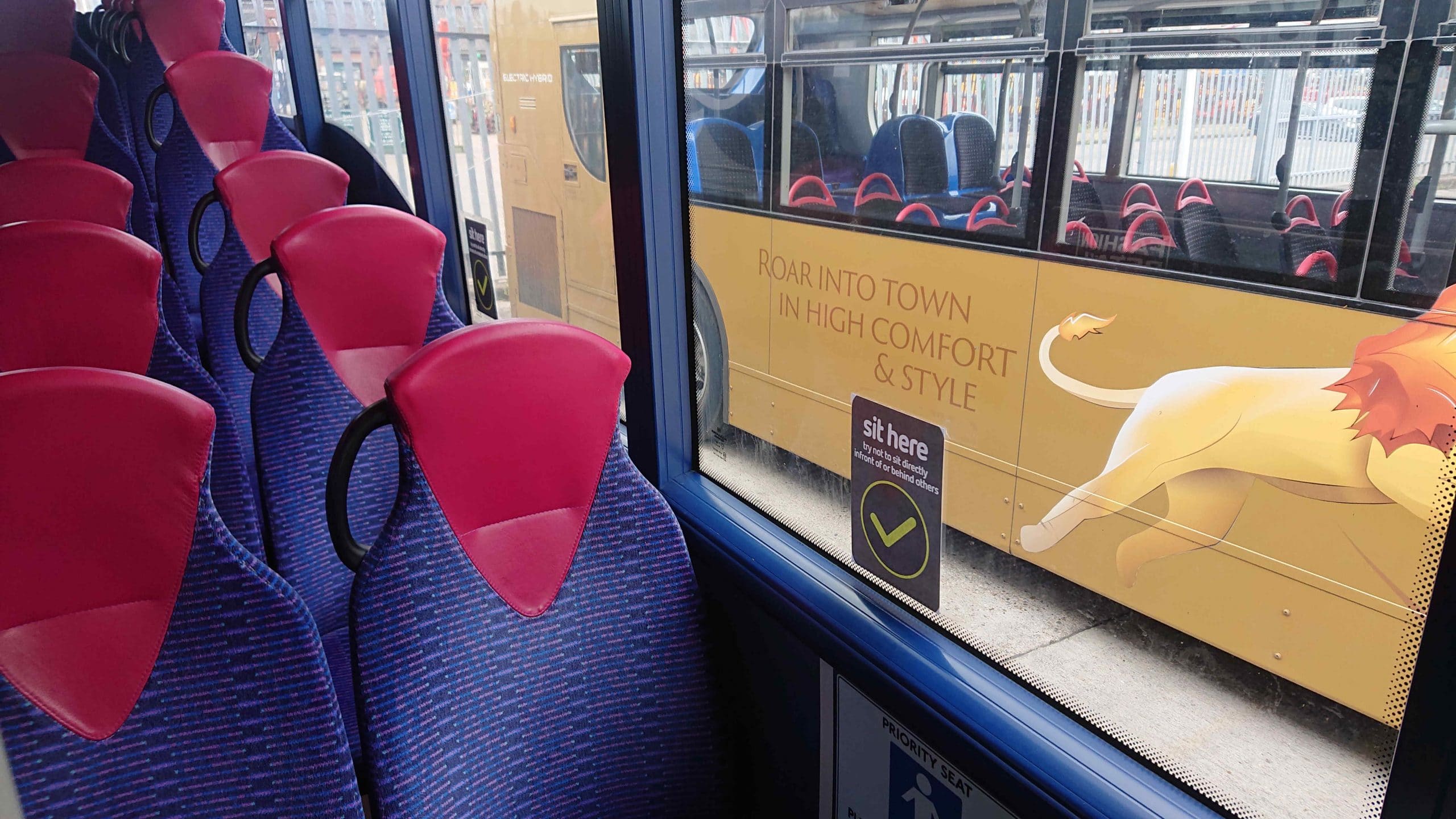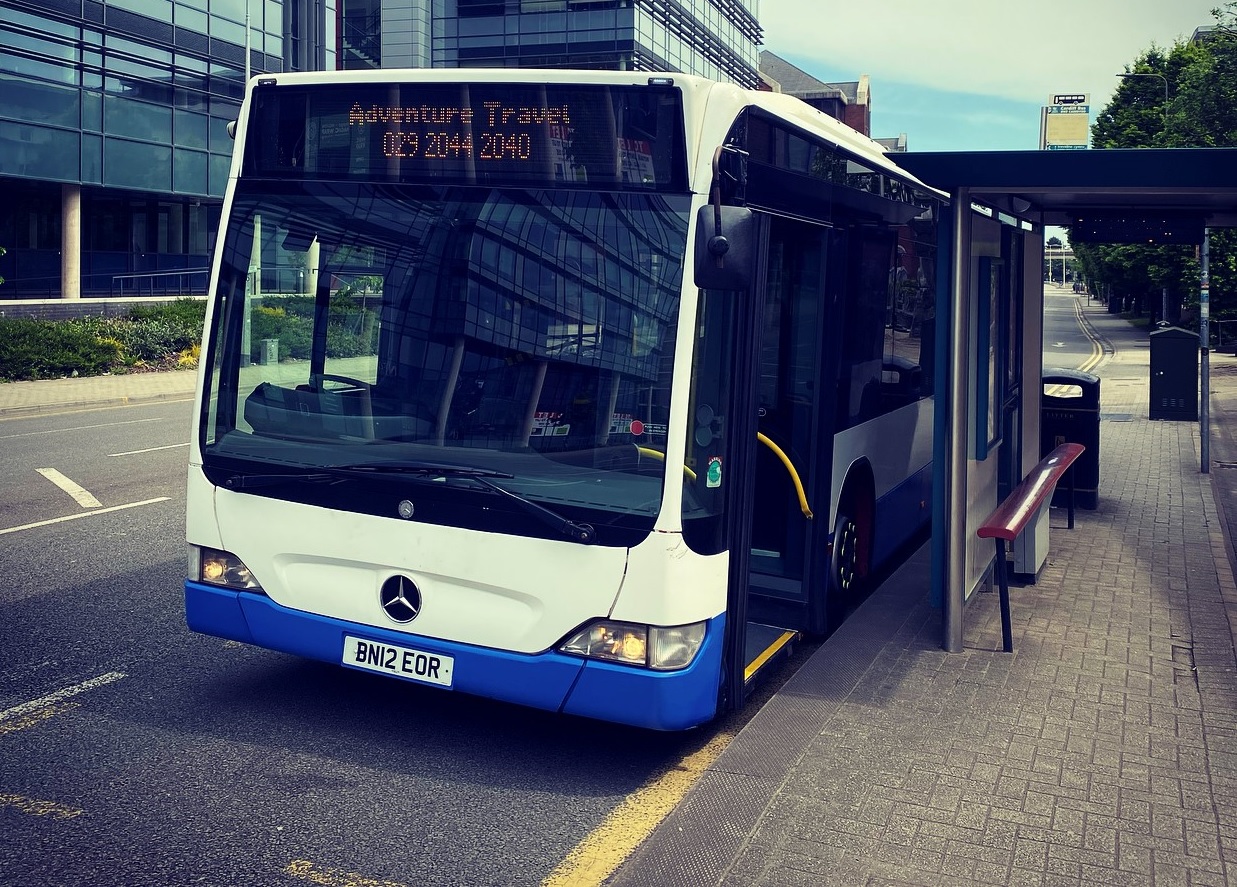routeone speaks to Transdev CEO Alex Hornby about the operator’s latest video campaign to bring passengers back – and that the operator’s buses are ‘clean, safe, and ready to go’
Non-essential retailers in England will be allowed to reopen their doors from Monday 15 June. Accompanying this announcement are of course caveats, outlined in the ‘working safely during coronavirus COVID-19’ guidance offered by the Department for Business, Energy and Industrial Strategy, first published 11 May.
In the guidance, shops are advised to follow already well-established social distancing measures, such as limiting customer numbers and the provision of hand-sanitising facilities. But a striking statement – which echoes messages by government made one month ago to avoid public transport – encourages those working in shops or branches to work with their local area ‘to provide additional parking or facilities… to help customers avoid using public transport’.
Changing the message
The government’s ‘avoid’ rhetoric has already been criticised by operators and the Confederation of Passenger Transport (CPT) as risking a long-term stigma to both public transport and its users. CPT has made this message clear to government, however one operator is proactively working to encourage passengers back to buses with a new campaign and a pair of short movies to change the message to one that is more positive.
Transdev CEO Alex Hornsby explains how the company began to create its ‘clean, safe and ready to go’ campaign the moment the lockdown measures appeared to be easing. Core to this move was the desire to instill confidence in the business’ customers and showcase the range of initiatives Transdev has undertaken to ensure its fleet is as clean and safe as possible.
“I shared people’s shock at the statement to avoid public transport,” he says. “My worry was how long lasting such a statement could have on the industry, and I also felt it was a message delivered from a fear that buses would be overloaded. I can understand the rationale, but that has not been our experience, and the industry has responded exceptionally well to the pandemic.”
Transdev’s new campaign is a public display of the work done behind the scenes to ensure shared transport remains an attractive option for commuters. “It highlights the work we already did in between journeys during the daytime, and how we have extended the use of intense cleaning methods to the use of anti-viral mist every night,” Alex explains. “The ‘clean, safe, ready to go’ campaign brings all the messaging together.”
The first of the two movies developed to spread the message emphasises the cleaning efforts that have taken place behind the scenes, while its sequel shows customers what to expect on their return.
Customers are reassured by a message that staff are keen to engage with them as they navigate timetable changes and capacity restrictions as a result of the pandemic. Guidance is offered on how users should queue safely and to use onboard sanitisers, and of changes to signage inside vehicles. The latter has been produced in an on-brand method, which Alex says is designed to be more ‘comforting’ to those adjusting to the new environment. “We’ve avoided the use of warning tape or severe signage,” he explains. “We are trying to communicate messages in a digestible fashion that stays with the brand image of the buses. Passengers need to feel the bus is a safe and welcome place to be.”
He further points to the retailers and spaces that have spared customers from excessive signage and black and yellow tape. “There is uncertainty and discomfort out there. People don’t know what to expect, and if we present something that could be interpreted as a crime scene after the effort we have made to make our buses look and feel nice, we could destroy that appeal.”
At time of writing, Transdev works on the assumption that social distancing will last for months. However, that may be set to change following a recent government announcement that the two-metre social distancing rule could be scrapped come September. Whatever happens, Alex says passengers and operators must “work together to manage through this new normal, by maintaining a comfortable environment that will attract people back to buses – and maintain income into the sector.” Government support must be used wisely to balance the short-term trade-offs, such as limiting capacity. Transdev is carrying as few as 12 people on some services, and so has committed to duplicate journeys on busier routes to maintain appeal.
Multiple channels
Technology has taken a key role among the gamut of measures taken to make the bus experience more comfortable for passengers.
The Transdev app and website now show the number of persons travelling on any one bus and invites users to submit such information until the means becomes available through ticketing. The spread of information made possible improves user confidence in the bus, Alex says, and Transdev is working more intensely than ever before to increase the scope of this technology.
The operator’s ‘clean, safe, ready to go’ campaign is disseminated through all of its customer facing websites and social media channels. The operator estimates a reach beyond 100,000s of users. Yet more traditional formats are used, including leaflets and posters placed in bus stations, stops and on the vehicles. Audi-visual announcements in stations and on buses completes the ensemble. “The range of media reaches the entire cross-section of our customers,” Alex adds.
Rolling research
Transdev is presently operating around 70% of its pre-pandemic levels with a trajectory suggesting an increase to 90% in the next month. “We’re watching every lockdown easing measure very carefully,” Alex says. A large proportion of Transdev’s customers will be those who return to non-essential retail from Monday, and their reaction will form part of a rolling research project to understand customer views about bus use.
700 respondents have so far conveyed that the vast majority of former bus users are set to return post-lockdown. “That means they either trust us and hold us in high regard, or they have seen our messaging and feel reassured,” Alex says.
The research began around two weeks after the start of the outbreak. Customers are primarily asked whether they will return to buses and, if not, what it would take to attract them. “We asked about the reasons for travelling to get accurate answers and made ensure the sampling was high,” Alex says. In April, around 10% of respondents claimed they would refuse to return to buses after the pandemic, the primary reason being a wariness of sharing a confined space with others. Transdev has been relatively comforted by the statistics, and continues to look at the research of others to gauge attitudes.
Recognising the industry
“We’ve gotten tremendous value back from maintaining our good relationship with customers and staff,” Alex says. In a final piece of advice for other operators of both coaches and buses, he says it is crucial that colleagues are thanked along the way. “More than ever we have shown ourselves to be a people-oriented business, and we are able to deliver services that continue to operate and rise about a new challenge.
“It has emphasised the team effort and all too often there are many whose effort goes unrecognised. The cleaners have worked exceptionally hard, our engineers have put a fleet on the road at short notice, and all the while staff have reassured and assisted customers. If we recognise our colleagues, the customers they deal with appreciate that as well.”
Of course, the nature of Britain’s bus operators in every facet will be what maintains the industry’s appeal beyond the signage and campaign videos. “At pace, the deregulated bus industry has shown itself to be customer-centric, fast-moving and as an entity that acts in tremendous good faith in order to commit to its role in moving people safely around the country,” Alex adds. “The message to avoid public transport must change – and instead, move to one that emphasises how buses are clean, safe, and that the industry is doing all it can to ensure people can be carried safely.”
What are you doing to emphasise your work in a way that is comfortable, reassuring and informative? How do you honour the work of your colleagues? Share your stories by emailing editorial@route-one.net

































